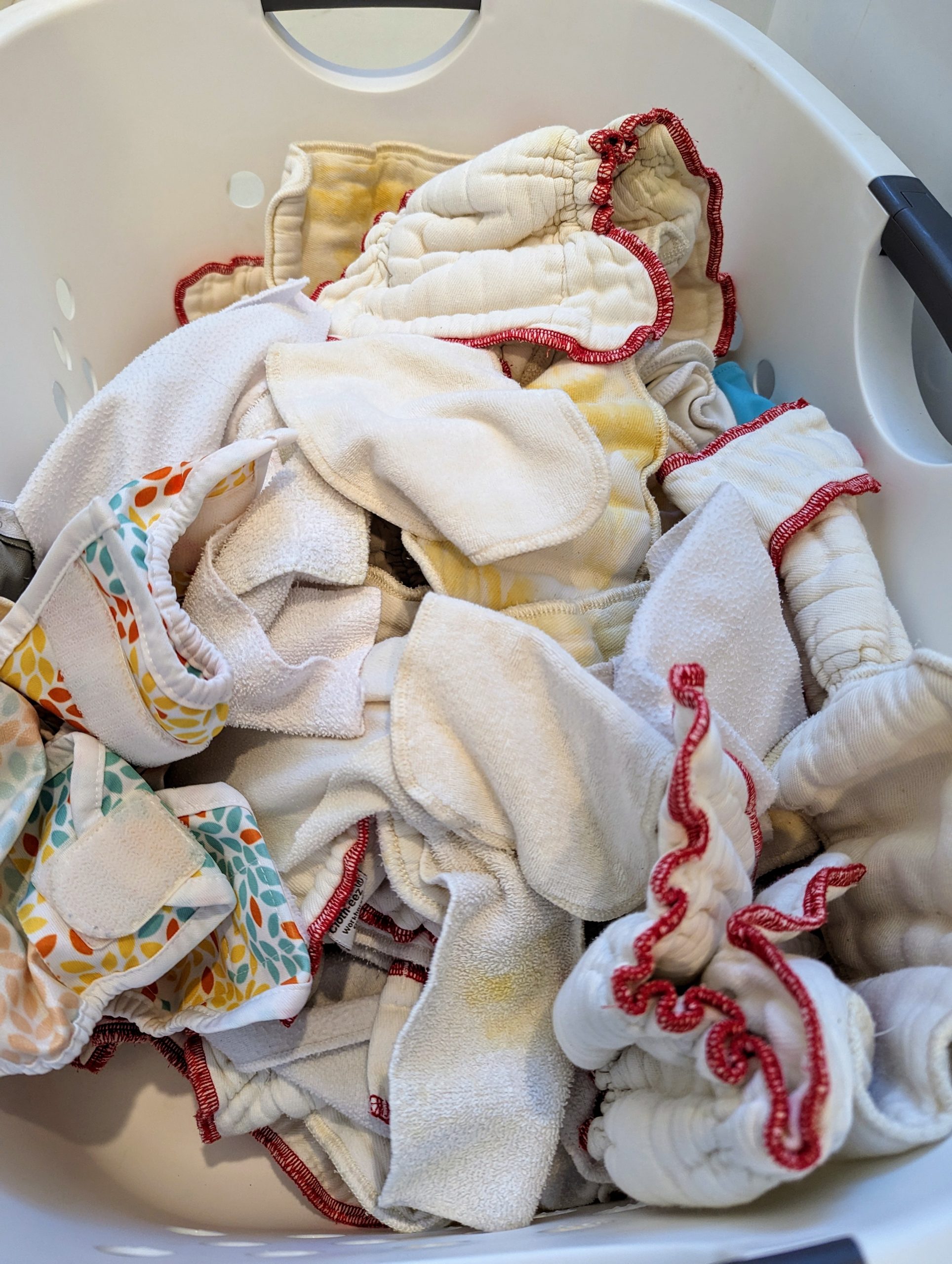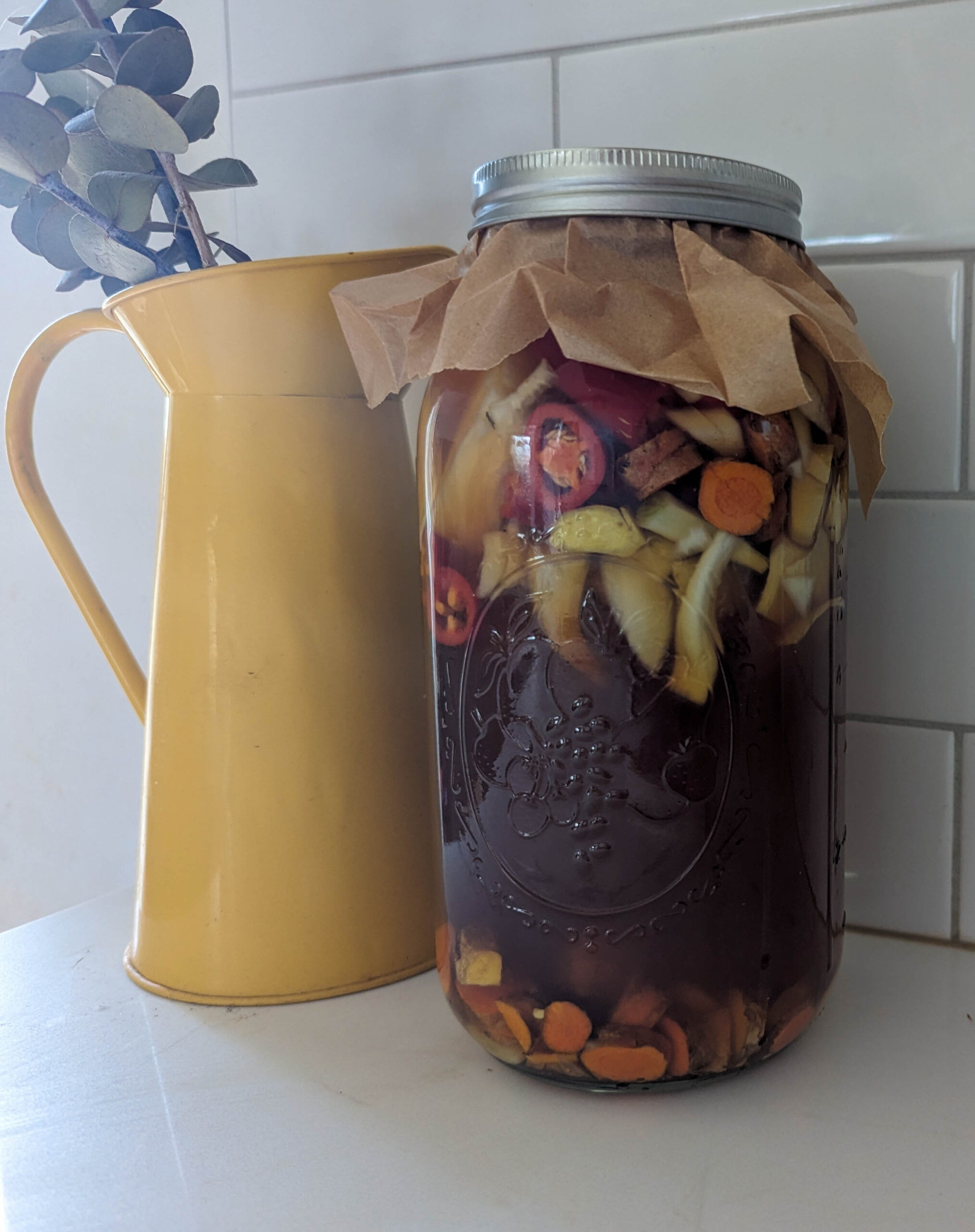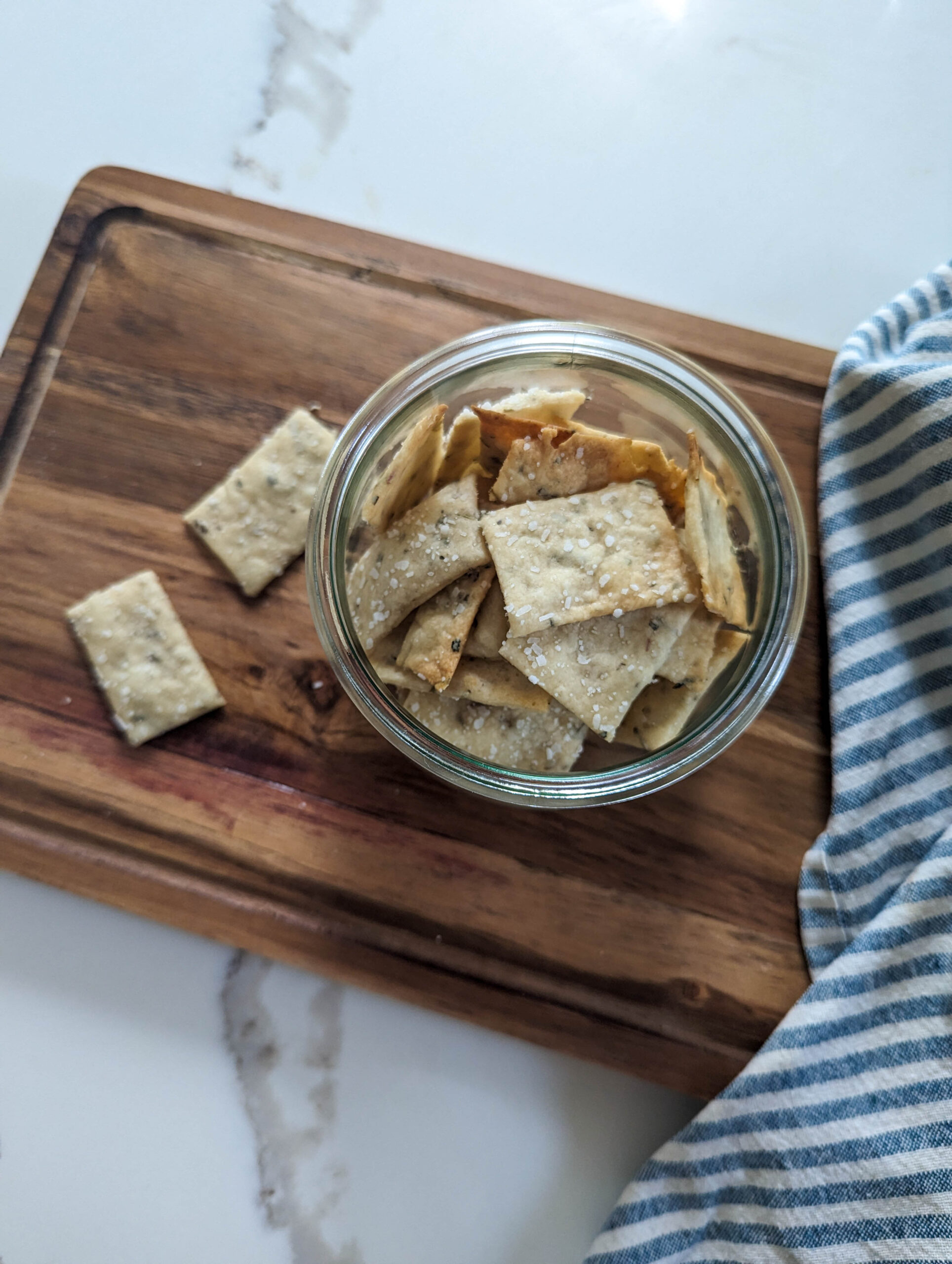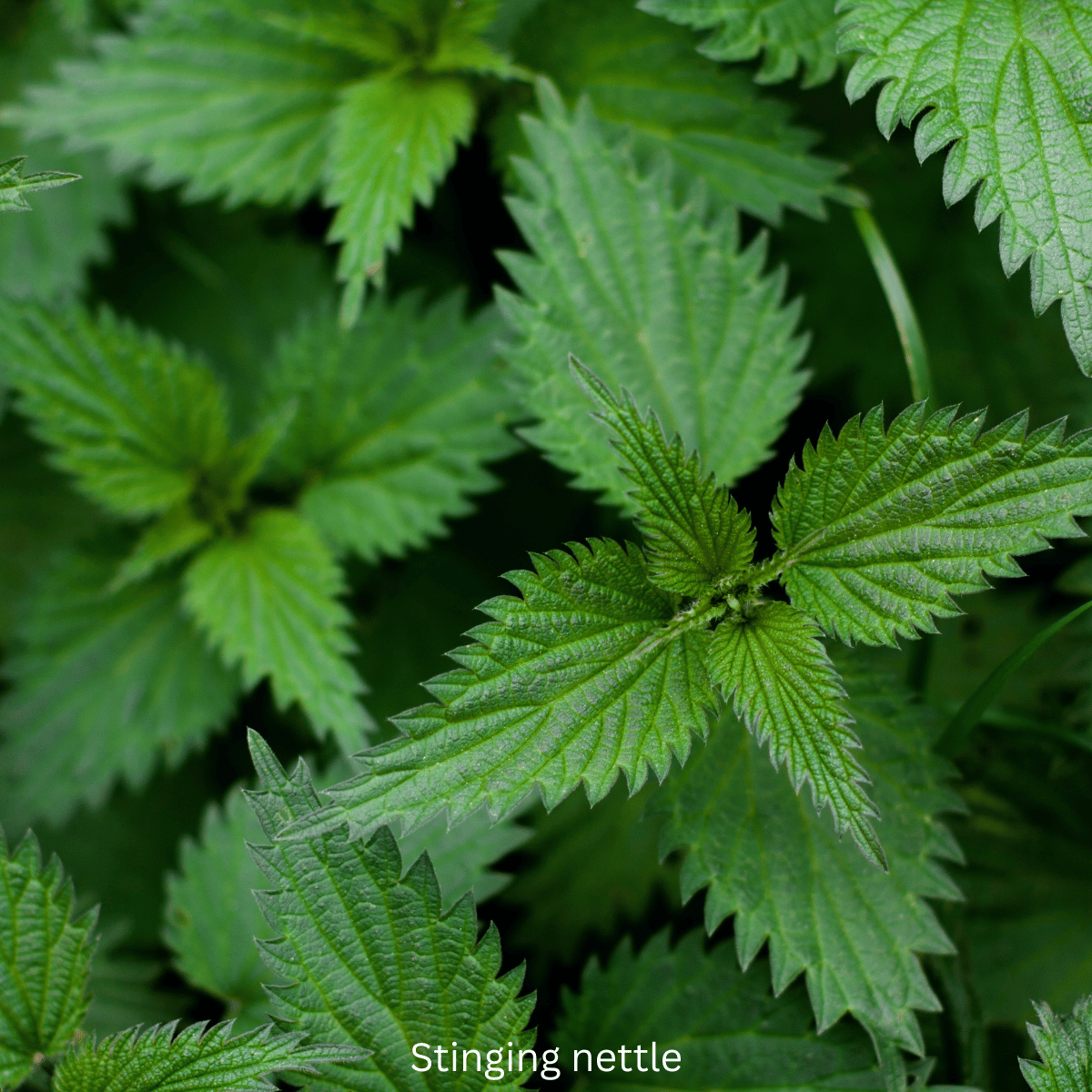Best Herbs for Diabetics: Top Natural Remedies
In this post, we’ll explore the best herbs for diabetics—herbs that support blood glucose regulation, enhance insulin sensitivity, and promote overall well-being. From bitter melon to cinnamon, these herbs can complement a diabetes management plan and provide powerful natural support.
With the increasing prevalence of diabetes in the United States, managing this chronic condition is more important than ever. Many people are exploring natural and complementary options to support their health. Herbs have long been used in traditional medicine, and modern research continues to highlight their potential benefits for blood sugar control.
Save for Later!
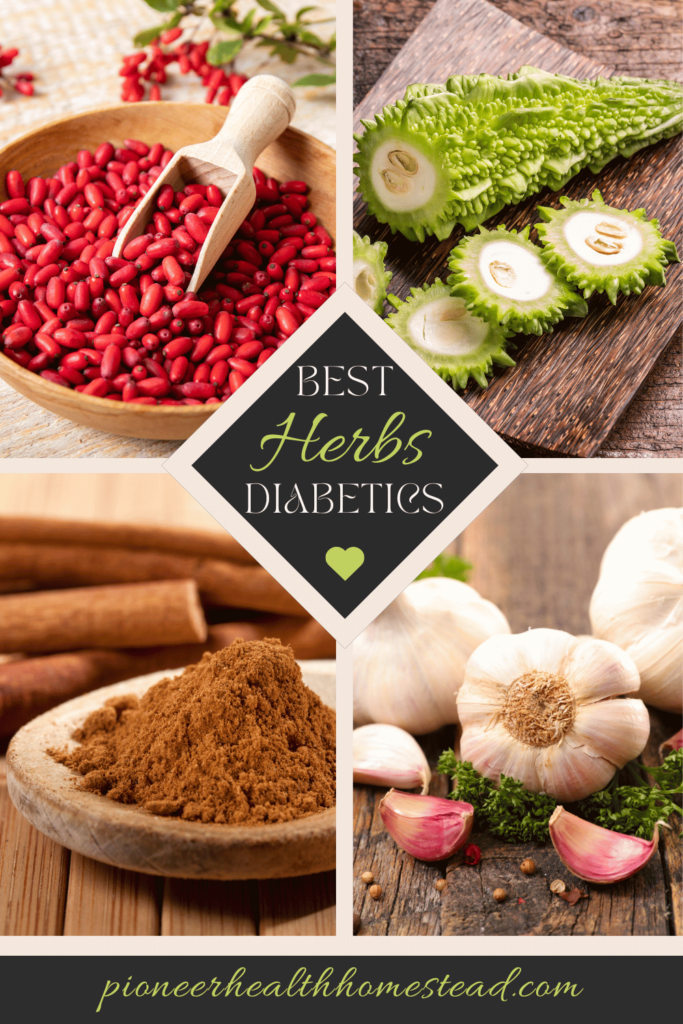
What To Expect
The best herbs for diabetics can play a significant role in managing this growing health issue in the United States. The prevalence of diabetes continues to rise, leading to serious health complications. Millions are living with diabetes or prediabetes, and many face challenges in managing their blood glucose levels. As a registered nurse, I often witness the struggles patients encounter while trying to maintain healthy blood sugar levels.
The Role of Best Herbs for Diabetic Management
In my nursing practice, I frequently see patients seeking natural remedies to complement their diabetes treatment plans. Herbal remedies have shown potential benefits in supporting blood glucose control and overall well-being. Many herbs have been used for centuries in traditional medicine to help regulate blood sugar and improve insulin sensitivity.
Understanding Diabetes
Definition of a Diabetes
Diabetes is a chronic condition that affects how the body processes glucose. There are two main types: type-1 and type-2 diabetes. Type-1 diabetes occurs when the body cannot produce insulin. This form often develops in children and young adults. Type-2 diabetes, on the other hand, is more common and usually develops in adults. It occurs when the body becomes resistant to insulin or does not produce enough.
Insulin Resistance and Sensitivity
Insulin resistance and sensitivity are crucial concepts in diabetes management. It can occur when cells do not respond effectively to insulin. As a result, glucose remains in the bloodstream, leading to high blood sugar levels. In contrast, insulin sensitivity refers to how effectively cells respond to insulin. Higher sensitivity means the body uses insulin more effectively, which helps lower blood glucose levels.
Importance of Glycemic Control
Maintaining stable blood sugar levels is vital for diabetes management. Poor glycemic control can lead to serious complications, such as heart disease, kidney damage, and nerve issues. It can also cause fluctuations in energy levels and mood. Therefore, keeping blood glucose levels within a healthy range is essential. This can be achieved through a combination of diet, exercise, medication, and herbal remedies.
The Role of Best Herbs for Diabetics Management
Introduction to Herbal Remedies
Herbal remedies have been used for centuries in traditional medicine. Many cultures incorporate medicinal plants to treat various ailments, including herbs for diabetic management. These plants often contain active compounds that can influence blood sugar levels and insulin response. In modern complementary medicine, herbal remedies are gaining attention for their potential to support diabetes management. They can provide a holistic approach alongside conventional treatments, helping patients feel more empowered in their health journey.
Research Evidence
Research is beginning to confirm the effectiveness of herbs in diabetes management. Numerous clinical trials and systematic reviews demonstrate the positive effects of certain herbs on blood glucose control. For instance, studies available on platforms like Google Scholar highlight the benefits of herbs such as bitter melon and cinnamon. The American Diabetes Association also acknowledges the role of herbal supplements in managing diabetes. They emphasize the importance of integrating these remedies into a comprehensive treatment plan. Overall, the evidence supports the idea that herbal therapies can be a valuable tool for diabetic patients.
The Science Behind Best Herbs for Diabetics
Mechanisms of Action
Understanding how specific herbs affect blood sugar levels at the molecular level is crucial for appreciating their role in diabetes management. Here are some key biochemical pathways involved:
- Insulin Signaling: Many herbs enhance insulin signaling, which is vital for glucose uptake. For instance, compounds in bitter melon (Momordica charantia) mimic insulin, promoting glucose entry into cells. This can lower blood sugar levels effectively.
- Glucose Metabolism: Herbs like cinnamon contain polyphenols that improve glucose metabolism. These compounds enhance the function of enzymes involved in breaking down glucose, thus supporting healthier blood sugar levels.
- Antioxidant Properties: Garlic (Allium sativum) is rich in antioxidants that combat oxidative stress. By reducing oxidative damage to cells, garlic may help maintain normal insulin secretion and improve overall metabolic health.
Recent Research Updates
Recent studies have further validated the effectiveness of these herbs in managing diabetes:
- A 2023 clinical trial published in Diabetes Care highlighted that patients taking American ginseng (Panax quinquefolius) experienced a significant reduction in fasting blood glucose levels compared to a placebo group. This reinforces its role in enhancing insulin sensitivity.
- A systematic review in Nutrition Journal examined various studies on fenugreek seeds (Trigonella foenum-graecum). The review concluded that fenugreek significantly improved glycemic control and insulin secretion in type-2 diabetes patients, making it a powerful ally in diabetes management.
- Ongoing research on berberine (found in barberry) shows promising results in enhancing insulin sensitivity and reducing blood lipid levels, which can lower cardiovascular risks associated with diabetes.
By exploring these mechanisms and recent research findings, we gain a deeper understanding of how herbs can support diabetes management from a scientific perspective. This evidence underscores the potential benefits of integrating herbal remedies into a comprehensive treatment plan.
Best Herbs for Diabetics
Bitter Melon (Momordica charantia)
Medicinal Properties
Bitter melon enhances glucose uptake and insulin secretion through compounds like charantin and polypeptide-p.
Common Dosage
The typical dosage is 1-2 teaspoons of fresh juice or 500-1000 mg of extract per day.
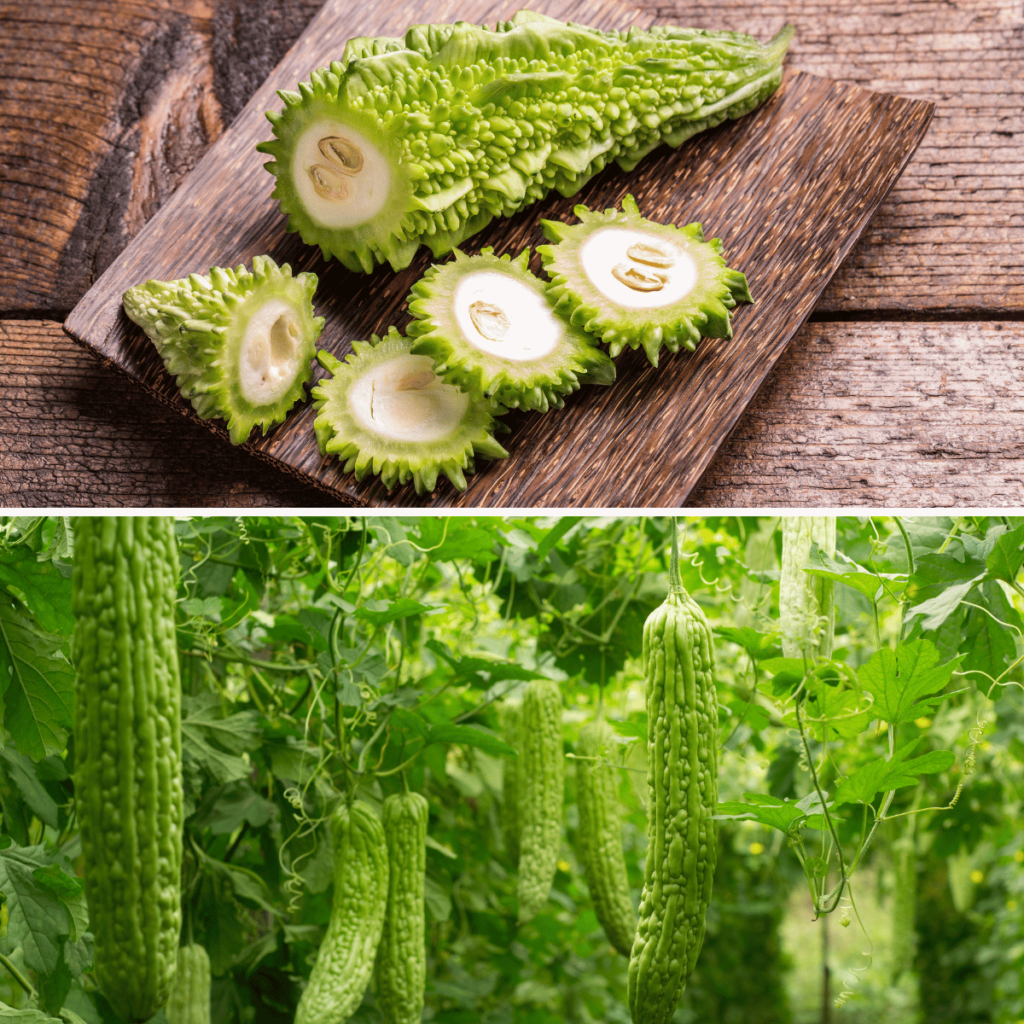
Cautions
Bitter melon may cause gastrointestinal discomfort in some individuals. Those taking diabetes medications should consult a healthcare provider, as it can enhance the effects of these drugs and lead to hypoglycemia.
Research Findings
Clinical studies show significant effects of bitter melon on lowering blood sugar levels. One systematic review revealed notable reductions in fasting blood glucose levels among diabetic patients, making it a valuable herb for managing diabetes.
Cinnamon
Active Ingredients
Cinnamon contains compounds like cinnamaldehyde and polyphenols that help improve insulin sensitivity.
Common Dosage
The recommended dosage is 1-6 grams (about ½ to 2 teaspoons) of ground cinnamon daily.
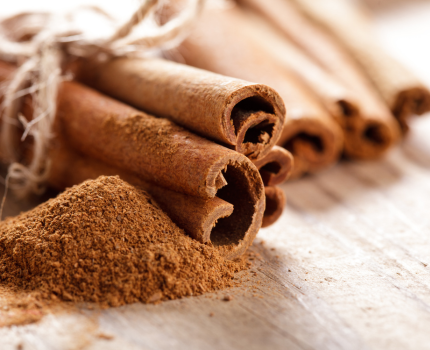
Cautions
High doses of cinnamon, particularly Cassia cinnamon, may pose risks due to coumarin content, which can harm the liver. It’s best to choose Ceylon cinnamon to minimize this risk.
Research Insights
Clinical trials indicate that cinnamon can improve insulin sensitivity and glycemic control. One study found that daily consumption led to a significant reduction in blood glucose levels and improved lipid profiles in type-2 diabetic patients.
Garlic (Allium sativum)
Benefits for Diabetic Patients
Garlic may help lower blood pressure and improve cholesterol levels, both crucial for heart health in individuals with diabetes.
Common Dosage
The typical dosage is 600-1200 mg of garlic extract per day or 1-2 cloves of raw garlic.
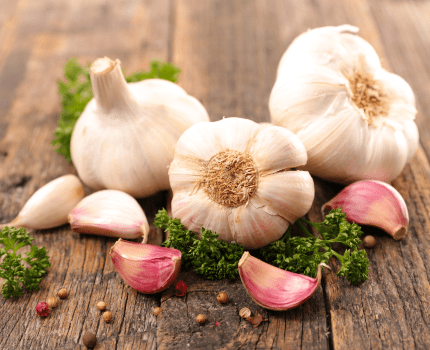
Cautions
Garlic can interact with blood thinners and may cause digestive upset in some people. Individuals scheduled for surgery should avoid garlic supplements for at least a week prior to their procedure.
Research Evidence
Studies have showcased garlic’s antioxidant properties and antidiabetic effects. A study indicated that garlic supplementation could significantly reduce fasting blood glucose levels, highlighting its potential as a complementary treatment in diabetes management.
Bay Leaf (Laurus nobilis)
Traditional Uses
Bay leaf has been used in herbal medicine to improve digestion and control blood sugar levels.
Common Dosage
The common dosage is 1-2 bay leaves steeped in hot water for tea, or 1-3 grams of dried leaves per day in capsules.
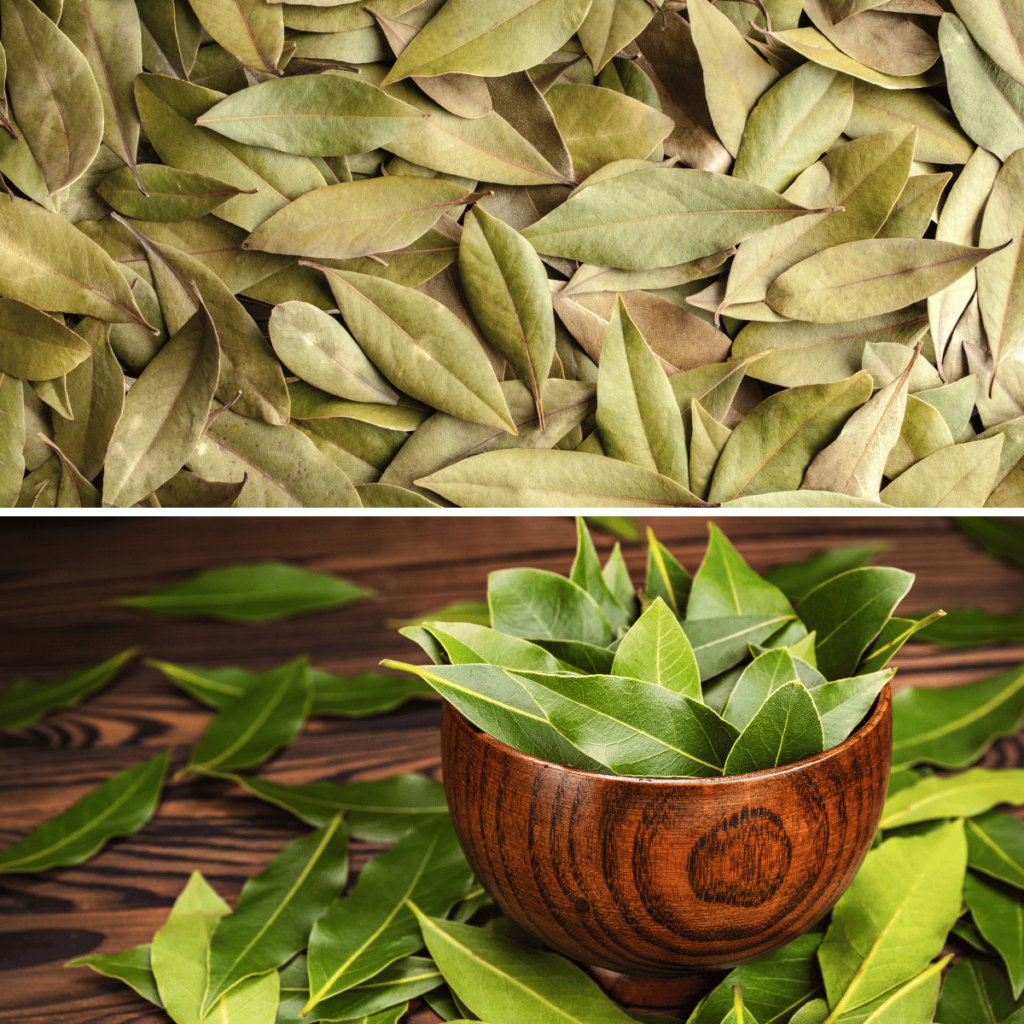
Cautions
Bay leaves are generally safe when used in cooking, but large doses in supplement form may cause gastrointestinal issues. Consult a healthcare provider before using high doses.
Research Evidence
Studies indicate that bay leaf can lower blood glucose and improve lipid profiles. One trial found that consuming bay leaf extract led to a significant reduction in fasting blood glucose levels and total cholesterol among diabetic patients.
Barberry (Berberis vulgaris)
Active Ingredients
Barberry contains berberine, which enhances glucose metabolism and promotes insulin secretion.
Common Dosage
The typical dosage is 500 mg of berberine extract taken 2-3 times daily.
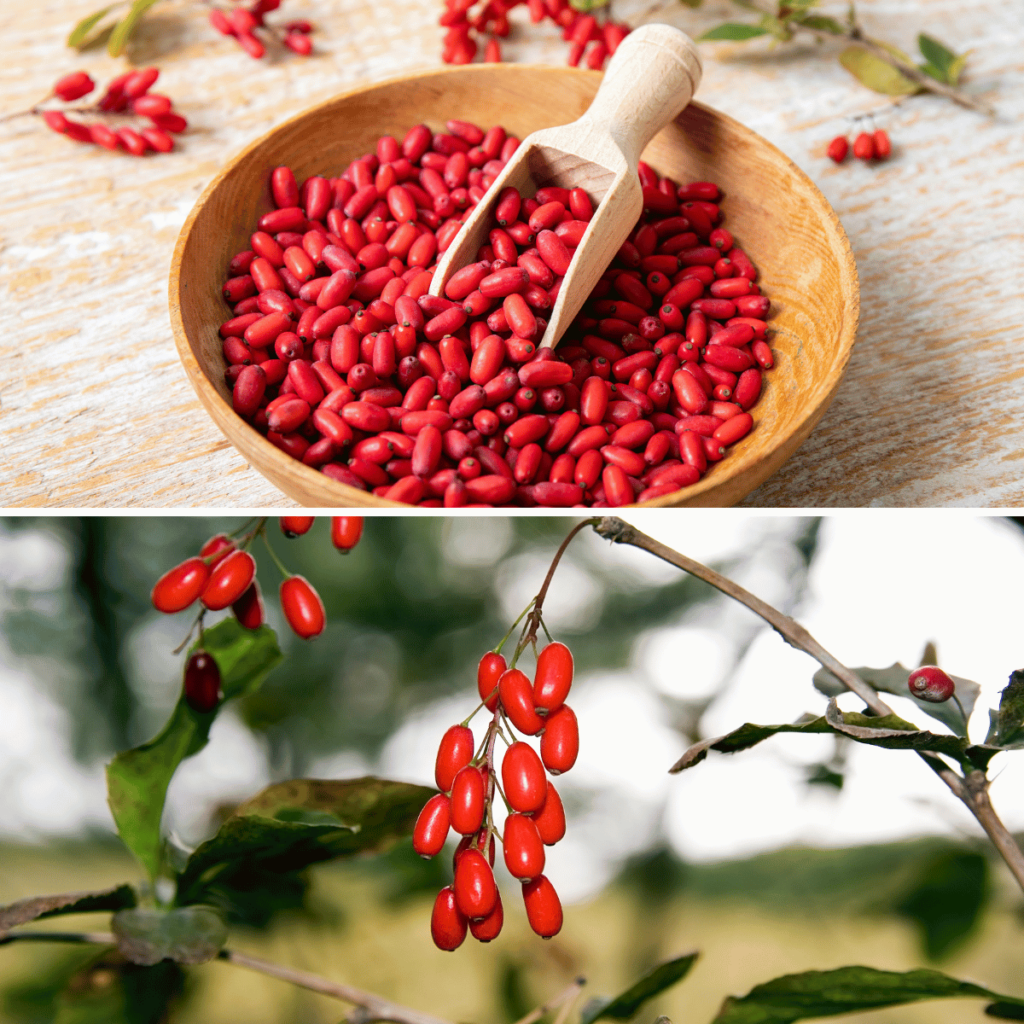
Cautions
High doses may cause digestive issues and should be avoided during pregnancy. Individuals on medications for diabetes or high blood pressure should consult their healthcare provider before use.
Research Insights
Clinical trials have shown positive effects of barberry on insulin secretion and glucose metabolism. One study reported that berberine supplementation significantly improved blood sugar control in patients with type-2 diabetes.
American Ginseng (Panax quinquefolius)
Therapeutic Effects
American ginseng is known for enhancing insulin sensitivity and regulating blood glucose levels.
Common Dosage
The common dosage is 200-400 mg of standardized extract taken 1-3 times daily.
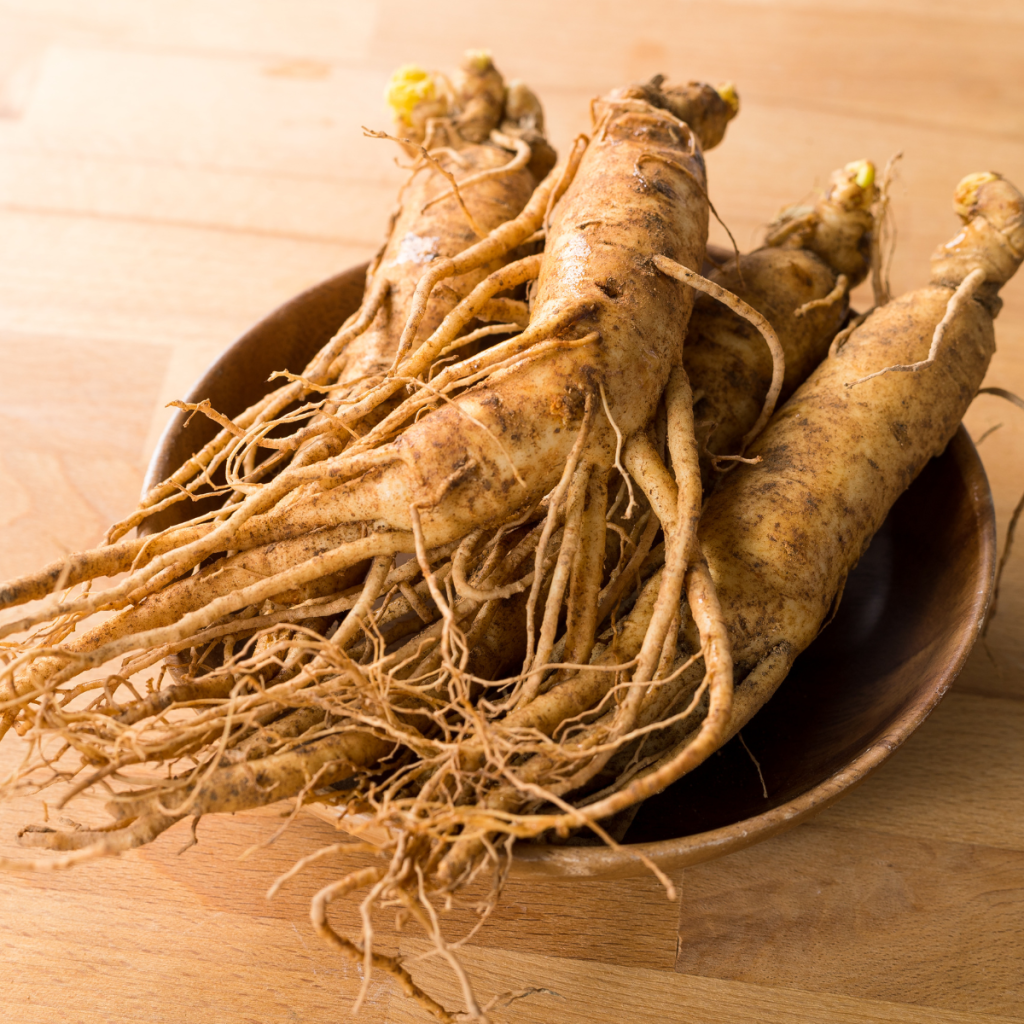
Cautions
American ginseng may interact with blood sugar medications. It should be used cautiously by pregnant or breastfeeding women, and those with hormone-sensitive conditions should consult a healthcare provider.
Research Evidence
Research demonstrates the effectiveness of American ginseng in managing diabetes. A clinical trial found that participants taking American ginseng experienced significant improvements in fasting blood glucose and insulin levels.
Practical Tips for Using the Best Herbs for Diabetics
Preparation Methods
Incorporating herbs into your diet can be simple and enjoyable. Here are various ways to prepare and consume the herbs mentioned earlier:
- Teas: Many herbs, like cinnamon and bay leaf, can be steeped in hot water to create soothing teas. Simply add one tablespoon of dried herb to a cup of boiling water, steep for 10-15 minutes, and enjoy.
- Tinctures: Tinctures are concentrated herbal extracts made by soaking herbs in alcohol or vinegar. They are potent and can be added to water or taken directly. To make a tincture, use 1 part herb to 5 parts alcohol. Let it steep for 4-6 weeks, shaking daily, then strain and store in a dark glass bottle.
- Powders: You can grind dried herbs like garlic or bitter melon into a powder. These powders can be sprinkled into smoothies, soups, or baked goods for added health benefits.
Traditional Recipes
Incorporating herbs into your cooking can be delicious! Here’s a simple recipe to try:
- Garlic and Bay Leaf Infused Olive Oil:
- Heat 1 cup of olive oil over low heat.
- Add 3-4 crushed garlic cloves and 2-3 bay leaves.
- Let it simmer for 10-15 minutes.
- Strain and store in a dark glass bottle. Use this infused oil in dressings, marinades, or drizzled-over vegetables.
Combining Herbs
Combining herbs can enhance their health benefits. Here are a few suggestions:
- Cinnamon and Bitter Melon Smoothie: Blend 1 cup of unsweetened almond milk, 1 small bitter melon (seeds removed), 1 teaspoon of cinnamon, and a handful of spinach for a nutritious breakfast option.
- Garlic and Barberry Stir-Fry: Add sliced garlic and barberry to your favorite vegetable stir-fry for an added health boost. This combination can enhance both the flavor and the health benefits of your meal.
By incorporating these preparation methods and combinations, you can easily integrate these powerful herbs into your daily routine for better blood glucose control and overall health.
Incorporating Herbs into a Healthy Lifestyle
Dietary Recommendations
A balanced diet is crucial for diabetes management. Including herbs like bitter melon, cinnamon, and garlic can enhance the benefits of your meals. Additionally, dietary approaches like the Keto, Paleo, and Carnivore diets have gained attention for their potential to lower blood sugar levels. Clinical studies show that these diets can improve insulin sensitivity and even help some individuals reduce or eliminate their need for insulin.
The Keto diet focuses on low-carb, high-fat foods. This can help stabilize blood glucose levels and promote weight loss, benefiting diabetic patients. Similarly, the Paleo diet encourages whole foods, emphasizing vegetables, lean proteins, and healthy fats. This can improve metabolic health. The Carnivore diet, consisting mainly of animal products, has also shown promise in reducing blood sugar levels for some individuals.
By combining these dietary strategies with herbs known for their antidiabetic properties, you can create a comprehensive diabetes management plan that promotes overall health.
Physical Activity
Regular exercise is vital for controlling blood sugar levels. Physical activity enhances glucose uptake by muscles, improving insulin sensitivity. When combined with herbal remedies, the effects can be even more pronounced. For example, incorporating bitter melon and garlic into meals before or after workouts can support blood glucose control.
Aim for at least 150 minutes of moderate aerobic activity each week. Activities like brisk walking, swimming, or cycling can make a significant difference. Additionally, strength training exercises can help maintain muscle mass and support metabolic health.
Holistic Approaches
Integrating herbal supplements with conventional diabetes medications can yield optimal results. While herbs can support blood sugar control and improve insulin sensitivity, they should not replace prescribed medications without consulting a healthcare provider. This collaborative approach allows you to benefit from the therapeutic effects of herbs while ensuring safe and effective management of your diabetes.
As you embark on this journey, remember that lifestyle changes are most effective when personalized. Regularly consult with a healthcare provider to tailor your diet, exercise, and herbal supplementation to your specific needs.
Safety and Considerations
Potential Side Effects
While herbs can offer various benefits for diabetes management, it’s essential to be aware of potential side effects and interactions with diabetes medications. For instance, some herbs may lower blood sugar levels too much, leading to hypoglycemia, especially when taken alongside insulin or other antidiabetic drugs.
- Bitter Melon (Momordica charantia) may enhance insulin secretion, but it can also interact with medications that lower blood sugar, increasing the risk of hypoglycemia.
- Garlic (Allium sativum) is known to improve insulin sensitivity but can also thin the blood, which may be problematic for those on blood thinners.
- Cinnamon can affect liver enzymes and interact with certain medications, particularly those metabolized by the liver.
Always monitor your blood sugar levels closely when incorporating these herbs into your routine, especially if you’re on diabetes medications. Be vigilant for signs of low blood sugar, such as dizziness, sweating, or confusion.
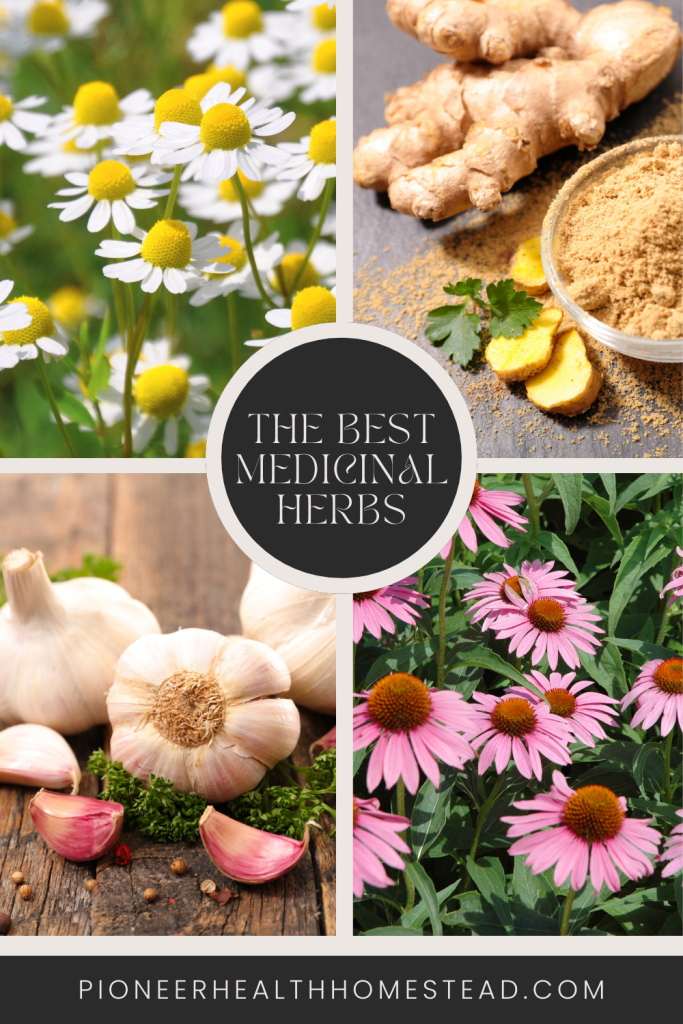
Potential Challenges and Misconceptions
Addressing Misconceptions
Herbs as a Complete Substitute
One common myth is that herbal remedies can completely replace conventional medications. While herbs can support blood sugar control, they should complement—not substitute—prescribed diabetes medications. It’s essential to work closely with healthcare providers to develop a comprehensive management plan.
Instant Results
Some individuals may expect immediate results from using herbal remedies. However, achieving stable blood glucose levels takes time, consistency, and a combination of dietary, lifestyle, and medication strategies. Patience is key when incorporating herbs into a management plan.
Safety of All Herbs
Not all herbs are safe for everyone. Certain herbs may interact with medications or exacerbate health conditions. It’s crucial to conduct thorough research and consult healthcare providers before starting any new herbal regimen.
Challenges in Implementation
Access to Quality Herbs
Not all herbs are readily available or of high quality. Seek out reputable suppliers or local herbal shops to ensure you are getting effective products. Consider growing your own herbs if possible, as this can also be a rewarding endeavor. Check out my resource page for my favorite places to source herbs.
Preparation and Usage
Some people may struggle with how to prepare and incorporate herbs into their diets. Start simple—use cinnamon in oatmeal or smoothies, or brew bay leaf tea. There are many easy recipes available online to help get started.
Habit Formation
Changing dietary habits can be challenging. Consider gradually introducing one herb at a time. This approach allows your taste buds to adjust and helps you monitor how each herb affects your blood sugar levels.
Personal Preferences
Not everyone enjoys the taste of certain herbs. Experiment with different preparation methods, such as smoothies or soups, to find the most enjoyable way to incorporate these herbs into your diet.
Empowering Diabetes Management with the Best Herbs for Diabetics
By understanding the role of the best herbs for diabetics, individuals can approach natural remedies with a realistic and informed mindset. Herbs can be a supportive part of a broader diabetes management strategy, empowering people to take charge of their health journey.
Consulting Healthcare Providers
Before incorporating any herbal remedy, it’s essential to consult your healthcare provider. They can guide you on which herbs might be most beneficial for your specific condition and ensure they won’t negatively interact with your current medications. This step is crucial for managing safety and efficacy effectively.
Your healthcare provider can also offer personalized advice on dosages and potential side effects, taking your overall health status into account. Collaborating with a healthcare professional ensures that you’re making well-informed decisions about your diabetes management, allowing for a more holistic and balanced approach.
In summary, while the best herbs for diabetics can be powerful allies in managing blood sugar, they should be used thoughtfully and under the guidance of a qualified healthcare provider.
Empowering Diabetes Management with the Best Herbs for Diabetics
Managing diabetes requires a comprehensive approach, and the best herbs for diabetics can play a significant role in this process. Throughout this blog, we explored several herbs, including bitter melon, cinnamon, garlic, bay leaf, barberry, and American ginseng. Each of these has unique properties that can help enhance blood glucose control, improve insulin sensitivity, and support overall well-being.
We also emphasized the importance of incorporating these herbs into a balanced diet and healthy lifestyle. Regular physical activity complements these efforts, further promoting effective diabetes management. However, it’s crucial to remember that these herbs should be used alongside conventional diabetes medications, not as a replacement.
I encourage you to consider a holistic approach to your health. Speak with your healthcare provider about how you can integrate these herbs into your diabetes management plan. By doing so, you empower yourself to take control of your health and explore the potential benefits that nature offers in the journey toward better blood sugar control.
Together, let’s embrace the healing power of herbs and strive for a healthier, more balanced life.
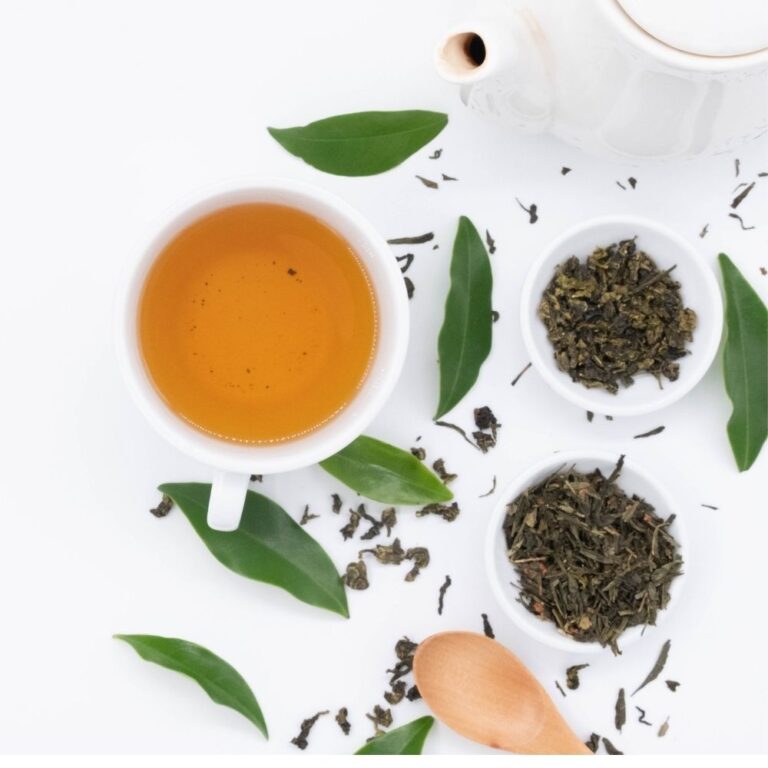
Green Tea Vs Herbal Tea: The Best Complete Tea Guide
Sharing is caring! Facebook Pinterest X Green Tea Vs Herbal Tea: The Best Complete Tea Guide Understanding the Differences Green tea vs herbal tea is a popular debate among tea lovers worldwide. Both offer unique flavors, health benefits, and caffeine content. Tea has a rich history and is enjoyed in many cultures. From Chinese green…
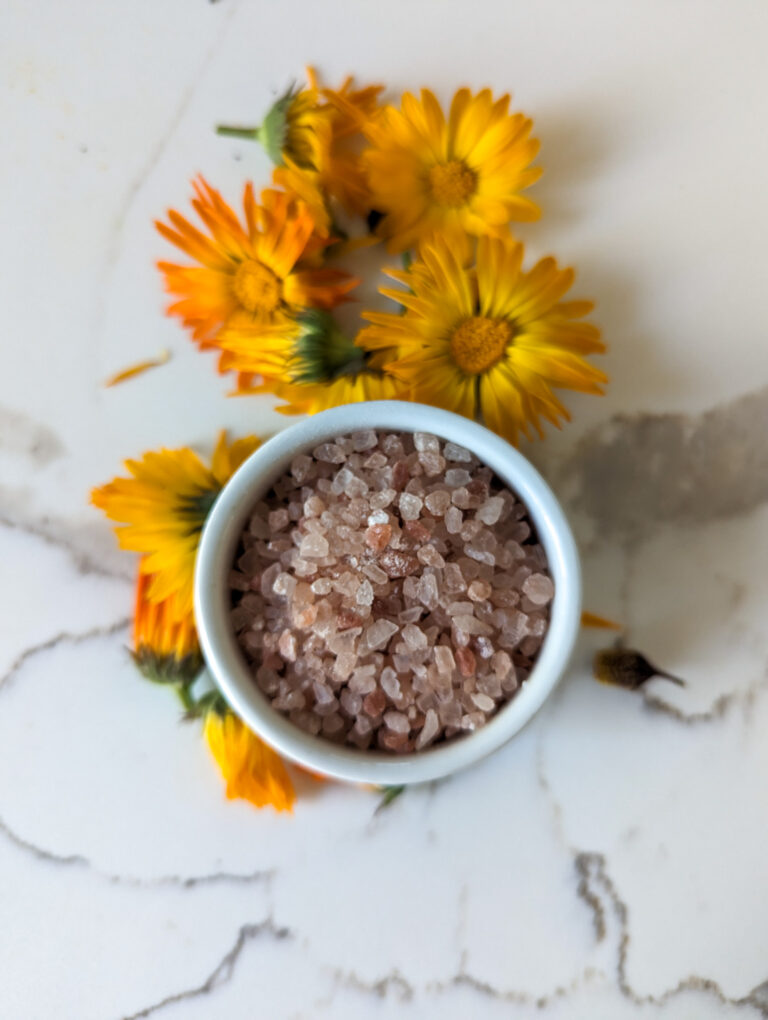
How to Make Bath Salts Without Epsom Salt: Free Recipe
How to Make Bath Salts Without Epsom Salt: Free Recipe How to Make Bath Salts Without Epsom Salt Homemade bath salts without Epsom salt are a great way to enjoy a luxurious soak. You can use natural ingredients like coarse sea salt, baking soda, and pink Himalayan salt for a soothing experience. A relaxing bath…
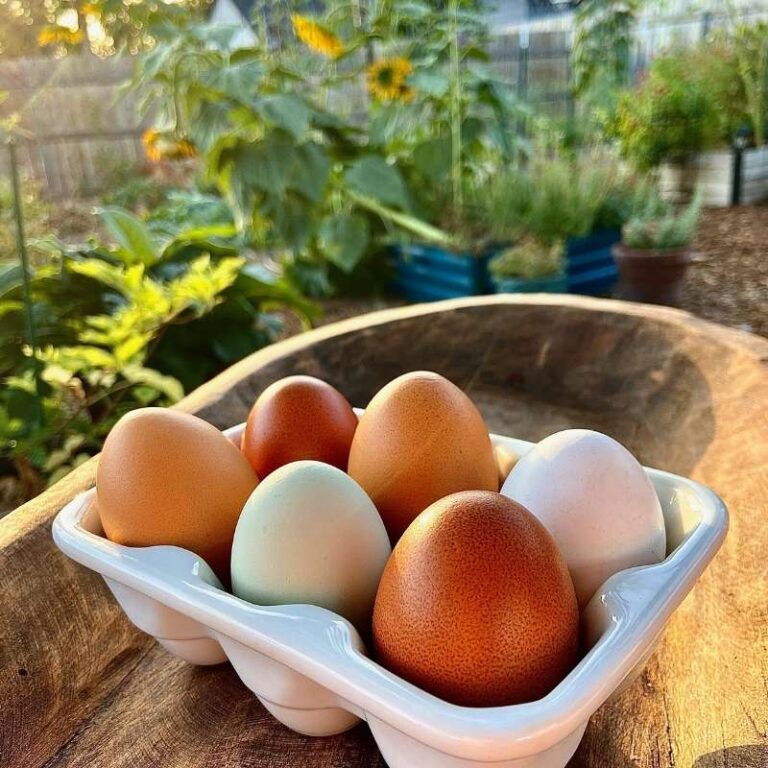
Homesteading in California: How to Start at Any Stage
Homesteading in California: How to Start at Any Stage How Homesteading in California is Possible Homesteading in California is a journey that looks different for everyone, depending on where you live in this vast and diverse state. From the deserts dotted with Joshua trees in the south, to the rugged mountain ranges in the north,…
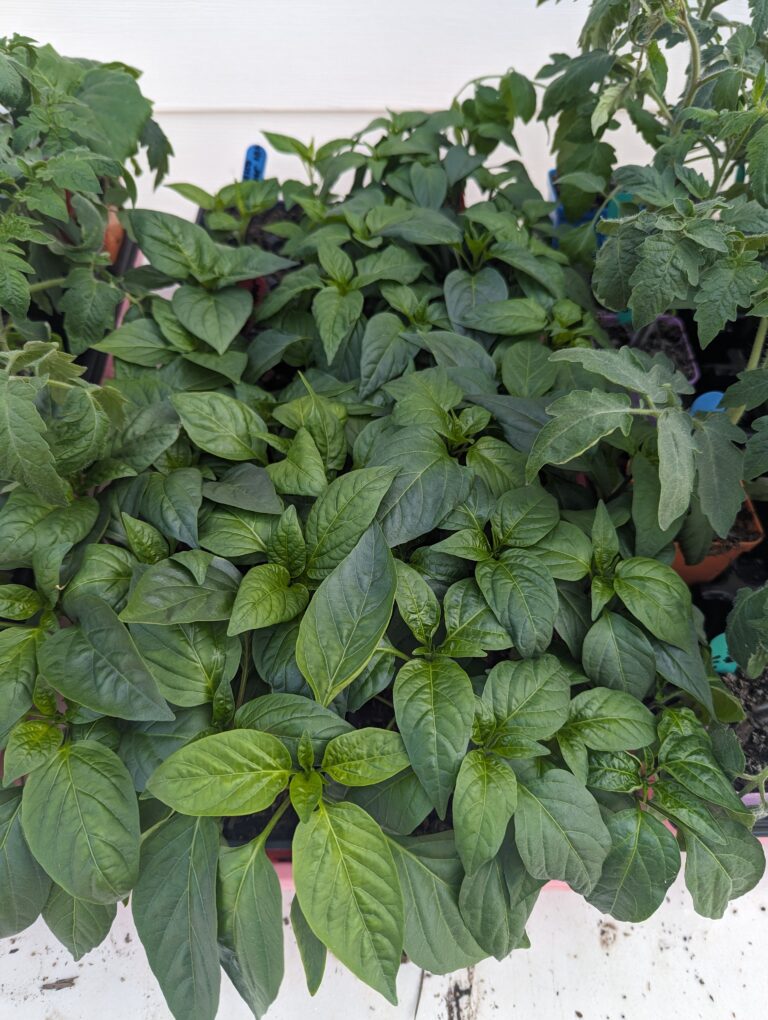
How to Make Peppers Grow Faster: Guide and Easy Tips
How to Make Peppers Grow Faster: Guide and Easy Tips How to make peppers grow faster is a common question among home gardeners seeking to maximize their growing season. Whether you’re nurturing sweet peppers, green peppers, or hot pepper plants, creating ideal conditions is essential for pepper success. The best way to achieve healthy pepper plants…

The Different Types of Cloth Diapers: Ultimate Guide
The Different Types of Cloth Diapers: Ultimate Guide The different types of cloth diapers offer a sustainable and eco-friendly alternative to disposable diapers for your baby. As a mom of five and a Registered Nurse, I’ve seen the many benefits of reusable cloth diapers firsthand. This guide will help you understand the major types of…
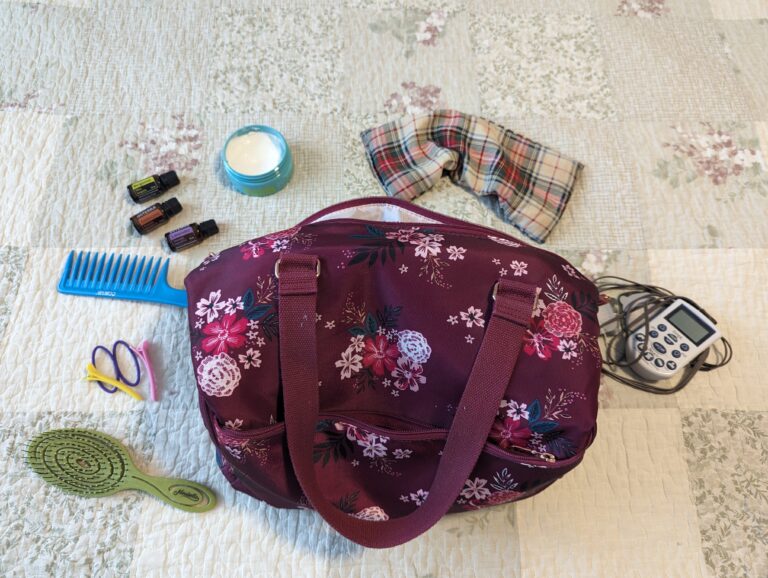
The Best Doula Bag Essentials Kit for Birth and Postpartum
The Best Doula Bag Essentials Kit for Birth and Postpartum The Best Doula Bag Essentials Kit for Birth and Postpartum A well-stocked doula bag is essential for supporting women during birth and postpartum. As a Registered Nurse, mother of five, and former Navy Hospital Corpsman, I’ve experienced the birthing world from many angles. I’ve worked…



